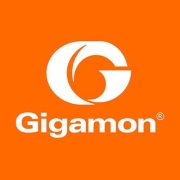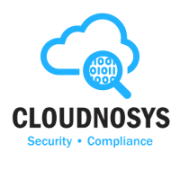Event Monitoring is a critical strategy for organizations looking to enhance operational efficiency, providing real-time tracking and analysis of system activities.
This solution enables businesses to track and analyze events across systems in real time, offering insights into user behavior and system performance. It helps detect anomalies, ensure compliance, and improve the security posture by logging events and generating alerts for suspicious activities. By integrating with existing IT environments, it maximizes agility and reduces response times to incidents.
What are the key features of Event Monitoring?In finance, Event Monitoring safeguards transactions by identifying fraud patterns. In healthcare, it ensures patient data remains protected while maintaining compliance with healthcare regulations. Retailers use it to optimize supply chain processes and personalize customer experiences by analyzing purchasing behaviors.
Event Monitoring aids organizations by providing visibility into system activities and user interactions, strengthening security measures, supporting compliance, and improving process efficiency.
| Product | Market Share (%) |
|---|---|
| ServiceNow IT Operations Management | 17.2% |
| OpsRamp | 14.0% |
| SCOM | 9.6% |
| Other | 59.2% |




























Event Monitoring can prevent data breaches by continuously tracking and analyzing user activity within your network. This solution allows you to quickly identify suspicious activities and unauthorized access attempts. By setting up automated alerts and anomaly detection, you can take immediate action to prevent data breaches before they occur. Event Monitoring provides a comprehensive view of all actions within your system, helping you to safeguard sensitive information.
What are the key features of an effective Event Monitoring solution?An effective Event Monitoring solution should offer real-time data collection and analysis, comprehensive reporting, and customizable alerts. It should integrate seamlessly with existing IT infrastructure, support diverse data sources, and offer scalability to accommodate business growth. The solution should also provide advanced analytics and machine learning capabilities to identify patterns and predict potential security threats. User-friendly dashboards and visualization tools are crucial for making data insights accessible to your team.
Why is Event Monitoring crucial for regulatory compliance?Event Monitoring is essential for regulatory compliance as it ensures you have a detailed log of all system activities and access points. These logs serve as critical evidence when demonstrating compliance with regulations like GDPR, HIPAA, and PCI DSS. Continuous monitoring helps you detect and respond to compliance violations in real-time, minimizing the risk of penalties and safeguarding your organization’s reputation. It ensures transparency and accountability in exploring any incidents or breaches.
How do you select the right Event Monitoring solution for your business?Choosing the right Event Monitoring solution involves assessing your specific security needs and organizational goals. Consider scalability, ease of integration with existing systems, and the range of supported data sources. Look for solutions offering real-time analytics, automated alerts, and customizable dashboards. Evaluating user reviews and seeking demonstrations can provide insights into usability and functionality. Ensure the solution aligns with your budget while offering robust security features and reliable support from the provider.
What are the best practices for implementing Event Monitoring?Implementing Event Monitoring requires establishing clear objectives, such as detecting unusual behavior or ensuring compliance. Start by identifying key areas to monitor, then set up detailed logging for those components. Regularly test and refine alert thresholds to minimize false positives while maximizing detection accuracy. Ensure thorough training for your IT staff to utilize analytics tools effectively. Continually review and update the system based on new threats and organizational changes to maintain optimal security and performance.